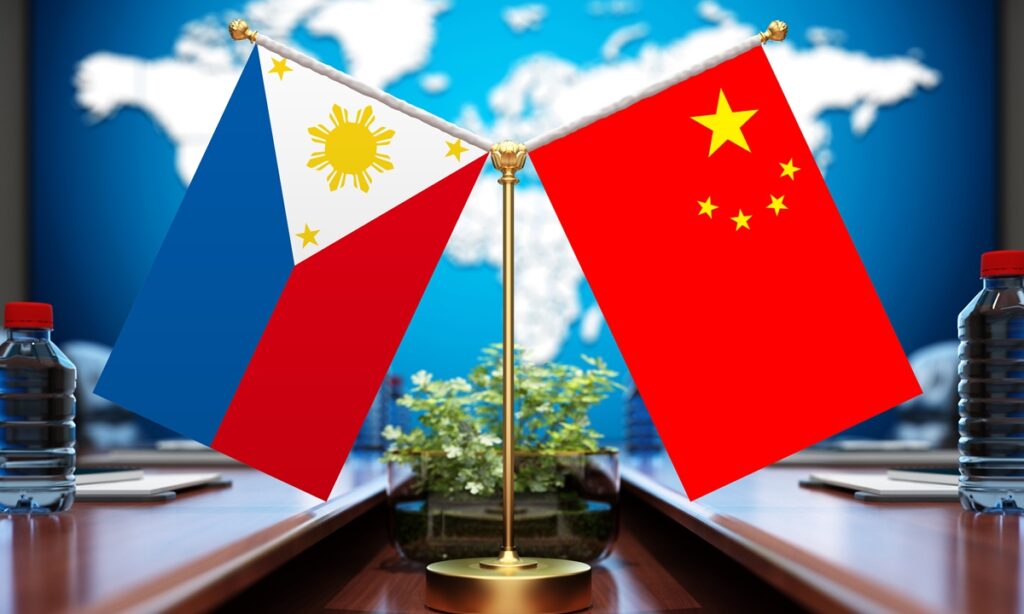Asian countries are working together to ‘reinforce cooperation, prevent chaos’
Presidents of the Philippines and Turkmenistan will visit China this week to further boost their ties with the world’s second-biggest economy and major power in Asia that provides certainty for the world in turbulence. Analysts said these diplomatic activities and arrangements show that China attaches great importance to its relations with neighboring regions, and it is making efforts to make “peace and development” remain the mainstream in Asia.
At the invitation of Chinese President Xi Jinping, President of the Republic of the Philippines Ferdinand Romualdez Marcos Jr. will pay a state visit to China from Tuesday to Thursday, and President of Turkmenistan Serdar Berdimuhamedov will pay a state visit to China from Thursday to Friday, the Ministry of Foreign Affairs announced.
As the first foreign leaders to visit China in 2023, these two countries share some similarities, said analysts. They are both Asian countries and share common interests with China, experts noted.
The two leaders met the Chinese president a few months ago, as Xi met Marcos in Thailand in November 2022 while attending the APEC leader’s meeting, and he met Berdimuhamedov in Samarkand in September 2022 on the sidelines of the Shanghai Cooperation Organization Summit.
Asian countries are aware of the dangers that could threaten the region. Peace and development are no longer the mainstream for Europe, which is very unfortunate, and Asian countries will not allow the same tragedy to happen in Asia. China will work together with partners in Asia to prevent risks, crises and dangers caused by non-regional forces that could bring conflicts and splits, and to further improve cooperation with them to reinforce peace and development, experts said.
The Western media outlets, especially from the US, are trying hard to hype disputes between China and the Philippines over the South China Sea issue, but these tricks will not affect the high-level common interests shared by China and the Philippines, which is why Marcos decided to choose China as the destination for his first foreign visit in 2023, analysts noted.
Xu Liping, director of the Center for Southeast Asian Studies at the Chinese Academy of Social Sciences, told the Global Times on Tuesday that “China is the first non-ASEAN country that Marcos pays a state visit to as president of the Philippines, and he brings a big delegation to cover many fields in which his country wants to further boost cooperation with China. This proves that the Philippines led by the Marcos administration still places ties with China in a very prioritized position.”
The Philippines wants to boost cooperation in the following fields: infrastructure, agriculture and energy, as well as people-to-people exchanges and culture, Xu said. Manila hopes China will continue with large-scale infrastructure projects in the Philippines to let the country better connect with the China-proposed Belt and Road Initiative and to benefit from China’s development.
Marcos also serves as Secretary of Agriculture in a concurrent capacity so he really cares about the food security amid the rising concerns over the food crisis caused by the Ukraine crisis, so he will also request for more cooperation with China to boost agricultural development in his country and to learn from China’s experience in poverty alleviation, experts noted.
The Philippines also attaches great importance to energy, especially in the field of new energy or clean energy, where China has technological advantages, Xu said. “It’s possible to see the two sides reaching new agreements to jointly explore energy resources in the South China Sea. And since China has adjusted its epidemic control and prevention policy, the Philippines will also want to seek opportunities to boost tourism recovery.”
Manila has a treaty of alliance with Washington, so when the US is pushing its Indo-Pacific strategy, it will surely try to get the Philippines to stand on its side. This attempt failed in the era of former Philippine president Rodrigo Duterte, so now the Biden administration is trying to fix US-Philippines ties, analysts said. However, they consider that Marcos will not cooperate and will keep Duterte’s successful diplomacy to keep a balance between major powers.
Following Marcos, the president of Turkmenistan will also pay a state visit to China. Turkmenistan is one of the main suppliers of natural gas in Central Asia, and plays an important role in securing not only energy security for China but also the whole region. Cooperation between China and Central Asian partners like Turkmenistan will help the whole region withstand the energy crisis that is damaging Europe seriously at the moment, experts said.
Zhu Yongbiao, executive director of the Research Center for the Belt and Road at Lanzhou University, told the Global Times on Tuesday that during Berdimuhamedov’s stay in China, the two countries could discuss further improving energy cooperation in multiple domains. Berdimuhamedov is also expected to sign documents on cooperation under the framework of the Belt and Road Initiative, he noted.
Currently, the 3,666-kilometer Central Asia-China gas pipeline, which begins at Gedaim, on the Turkmenistan and Uzbekistan border, and ends at Horgos in China’s Xinjiang region, remains an important and steady source for natural gas. As of mid-June in 2022, cumulative natural gas imports via the pipeline had reached 400 billion cubic meters, equivalent to energy generated by 532 million tons of coal with a reduction of 568 million tons of carbon dioxide emissions and 8.8 million tons of hazardous substances, the Xinhua News Agency reported.
By deepening cooperation with the Philippines and Turkmenistan, China is sending a clear message to the world that China has confidence and plans to deal with the profound changes and turbulence the world is experiencing, analysts said.
The Belt and Road Initiative and other initiatives for development and security will contribute more certainties to the world, and there is no chance for the US to interrupt the trend that more countries are seeking more and deeper cooperation with China to withstand the risks and crises caused by US hegemony and interventionism, experts noted.
(Global Times)




